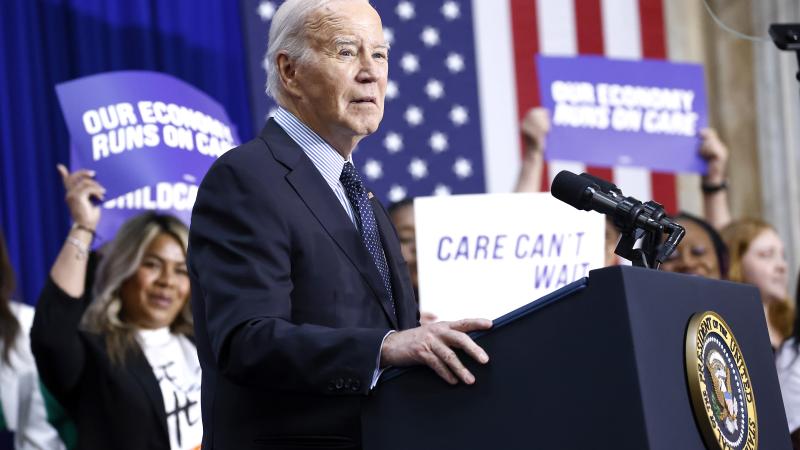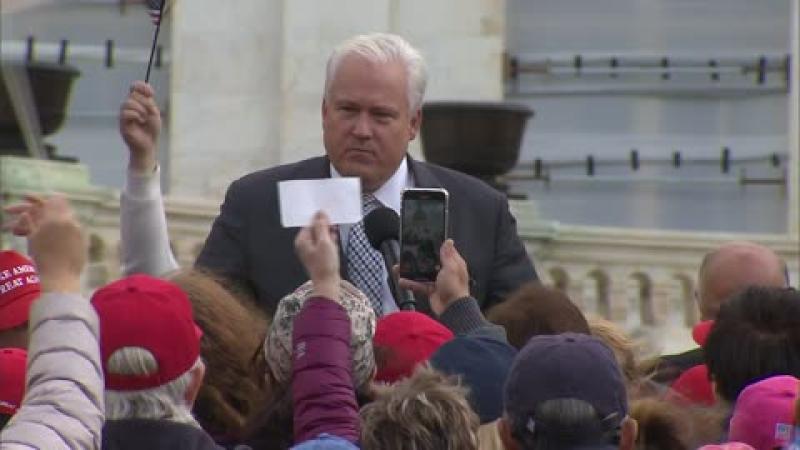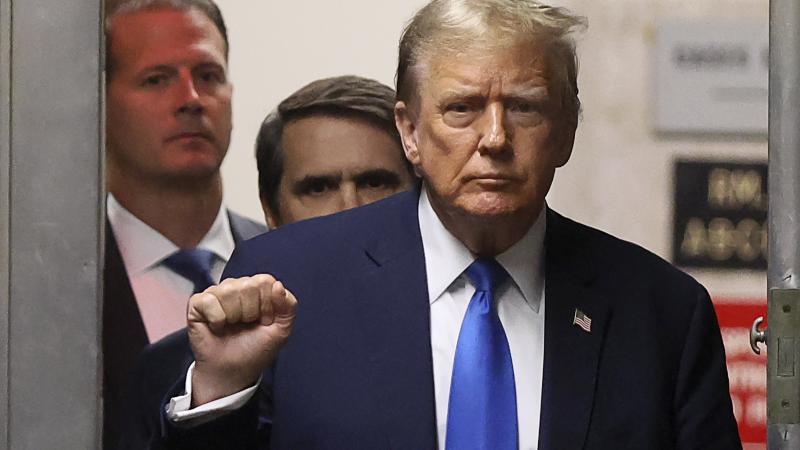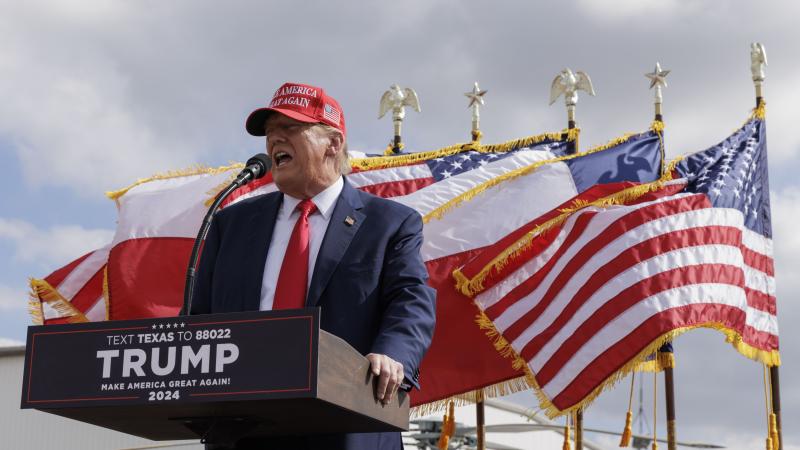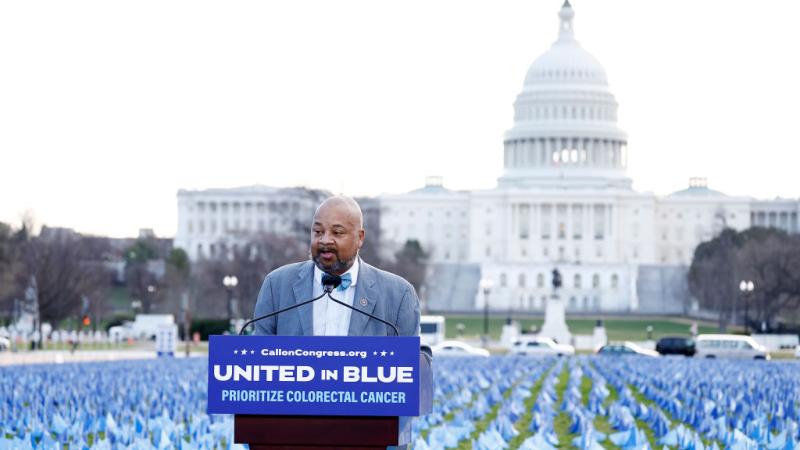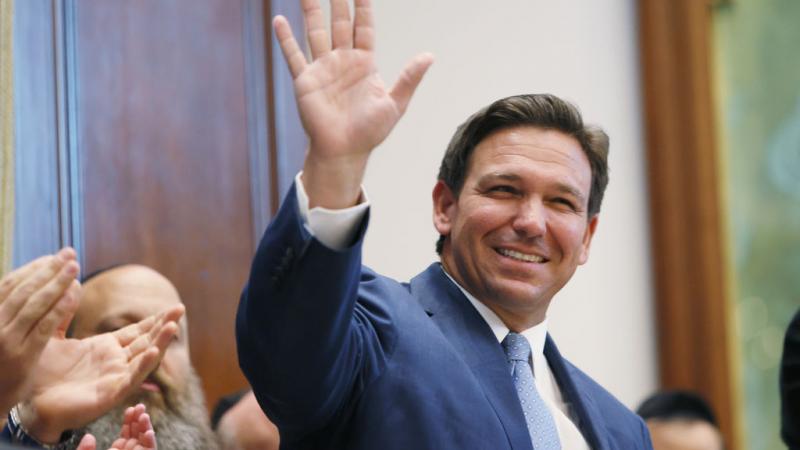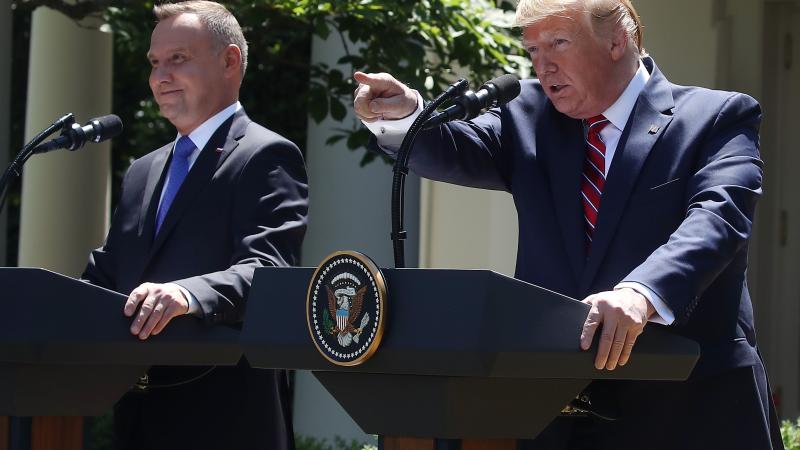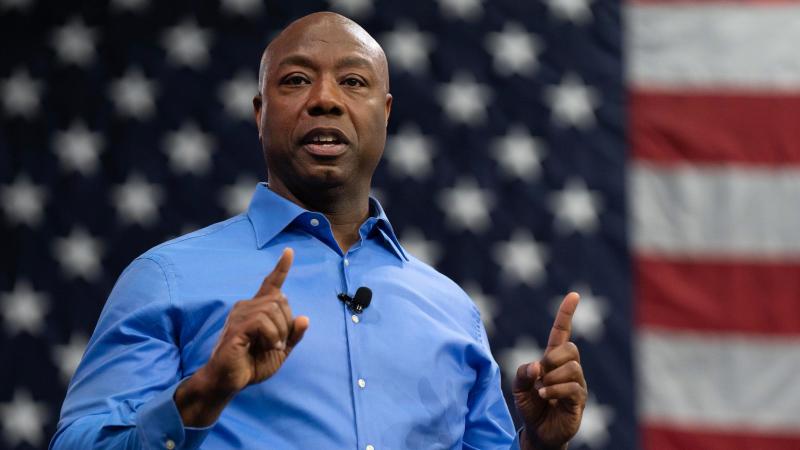How a top Democrat lawyer undermined both sides' confidence in U.S. elections
Marc Elias was central player in both 2016 Russia collusion hoax and 2020 campaign to upend voting laws in midstream.
Following the 2016 presidential election, a broad swath of Democratic voters, surrogates and lawmakers denied the legitimacy of the outcome, arguing Donald Trump's victory was rigged.
Following the 2020 presidential election, a broad swath of Republican voters and elected officials, including Trump, argued Joe Biden's victory was rigged and illegitimate.
In each case, a significant segment of the electorate lost confidence in the integrity of U.S. elections. In each case, the same man was at the center of that erosion of public trust: the Democrats' top election lawyer.
Marc Elias was a central figure in both the Russia collusion hoax, which cast doubt on Trump's victory in 2016, and the effort to upend the nation's voting laws in unprecedented ways, which cast doubt on Biden's victory in 2020.
"The legal mastermind probably most responsible for the leftist push to subvert our democracy, overturn elections, and destroy election integrity is Marc E. Elias," wrote John Fund and Hans von Spakovsky in their 2021 book "Our Broken Elections." He "has grown astoundingly wealthy representing Democratic candidates, political action committees, and party organizations" and "seems to have a monopoly on the Democratic political machine."
Elias was a central figure in both the Russia collusion hoax, which cast doubt on Trump's victory in 2016, and the effort to upend the nation's voting laws in unprecedented ways, which cast doubt on Biden's victory in 2020.
Before founding the Elias Law Group last year, Elias was a partner at the law firm Perkins Coie, which represented Hillary Clinton's campaign in 2016.
Elias headed the firm's political group and served as the Clinton campaign's general counsel. He testified both during a House Intelligence Committee investigation in 2017 and recently during Special Counsel John Durham's ongoing investigation into the origins of the Trump-Russia probe that he was the one who hired the opposition research firm Fusion GPS to dig up dirt on then-candidate Trump.
Fusion went on to solicit former MI6 agent Christopher Steele to create the infamous Steele dossier, which contained several salacious and since-debunked claims about Trump and his alleged ties to Russia.
Elias met with Steele during the 2016 campaign and periodically briefed the Clinton campaign about his and Fusion's research. Elias was also involved in the financing and dissemination of the Trump research, which was designed to show collusion between Trump's team and Russia. The high-powered lawyer, who has worked on behalf of the Democratic Party on numerous occasions, also testified he was aware of Fusion's plans to have Steele brief reporters on his anti-Trump findings.
Elias' former colleague at Perkins, Michael Sussmann, is set to stand trial next month as part of the Durham probe for allegedly lying to the FBI at a 2016 meeting in which he shared with the FBI some of the Trump-Russia dirt.
Claims of Trump and his associates colluding with the Russian government in the 2016 race caused Democratic lawmakers to call Trump an "illegitimate president," blaming the Kremlin for helping him win the White House. Some Democrats tried to block certification of the election results on Jan. 6, 2017, citing Russian collusion as a key reason for their objections.
Polling also showed a strong majority of voters didn't believe Democrats had accepted Trump won the election fairly and was a legitimate victor. Many Democratic voters thought the election was rigged, according to studies.
Elias's role as the figure "behind the hiring of Fusion GPS and the creation and propagation of the Russia-Trump election collusion hoax convinced many voters that the 2016 election had been rigged," von Spakovsky told Just the News.
Fast-forward to 2020, and history largely repeated itself, except the roles were reversed, with Republicans objecting to the results. But there was one key similarity: Elias was once again central to the events that ultimately led to widespread doubts about the integrity of the election.
Elias "doubled down" on his efforts in 2016 and "filed numerous lawsuits in 2020 to change election rules at the last moment, targeting the basic security protocols that states have in place to protect the security of the election process," said von Spakovsky, a senior fellow at the Heritage Foundation and manager of its election law reform initiative.
Von Spakovsky has separately called the number of lawsuits filed by Elias massive and unprecedented, saying it was an effort to "take advantage of COVID-19 to get the changes they've wanted for years into election rules" and had the effect of "plaguing" the 2020 election.
In the months before the November 2020 election, Elias and Perkins Coie spearheaded dozens of legal efforts across the country to challenge state election integrity laws — such as voter ID requirements and absentee ballot witness requirements — which, they argued, disenfranchised voters.
According to von Spakovsky, however, state laws requiring signature comparison and witness signatures on absentee ballots "are necessary to ensure that it is really the voter who completed the ballot."
Many of these laws had been enacted by state legislatures and signed by governors before Elias pushed to have them suspended by courts.
Elias justified his campaign as a public health response to COVID-19, pushing states to adopt universal mail-in voting and no-excuse absentee ballots so people didn't have to go out to polling places on Election Day. Historically, absentee, by-mail ballots were only meant for voters who had a legitimate reason for being unable to vote in person on Election Day, such as military deployment overseas.
Critics argue mass, no-excuse, mail-in voting combined with more lax verification rules for such ballots provides more opportunities for fraud — a claim denied by Elias, who has said voter fraud is not a widespread problem in the U.S. election system.
Elias' legal focus in 2020 was based on his so-called "four pillars" for a successful election: postage for mailed ballots must be free for voters; ballots postmarked on or before Election Day must count, even if they arrive after everyone's done voting; signature matching laws should be softened "to protect voters," and ballot harvesting should be legalized.
Ballot harvesting is a tactic, outlawed in most states, in which third-party activists gather and deliver voters' ballots. Proponents such as Elias say the practice is important to ensure voters who don't have easy access to outgoing mail or need extra help to get their ballots delivered can have their votes counted.
Republicans counter that ballot harvesting allows third parties who have a stake in the outcome of an election — such as members of campaigns and political parties — to have access to voters and their absentee ballots in an unsupervised setting. Such a practice, they argue, opens the door to potential fraud, intimidation, and other forms of coercion.
In Georgia, Secretary of State Brad Raffensperger has opened a criminal investigation into allegations that activists engaged in illegal ballot harvesting.
In Wisconsin, a former state Supreme Court justice appointed by the Wisconsin Legislature to investigate the 2020 election exposed an expansive ballot harvesting operation in nursing homes where third-party activists illegally collected the ballots of vulnerable residents, some of whom lacked the mental or physical capacity to vote or were forbidden from voting by guardianship agreements.
Elias waged legal fights — unsuccessfully — in multiple states before the 2020 election to overturn bans on harvesting.
Elias didn't respond to a request for comment for this story but told National Review in 2020 that he was challenging laws "that unnecessarily restrict voting rights, particularly the rights of lawful voters to cast their ballots in the middle of a pandemic and have them counted."
The election law changes pushed by Elias, combined with the alleged fraud, illegalities, and irregularities in the 2020 vote, led Trump, Republican lawmakers, and Republican voters to question and challenge the results of the vote. (Elias ended the year as lead counsel for Biden's campaign, fighting the Trump campaign's lawsuits after the election.)
On Jan. 6 of last year, the day of the Capitol riot, 147 GOP members of Congress voted against certifying the results of the election. Polls have repeatedly shown since November 2020 that a strong majority of Republicans don't trust the U.S. election system.
As Democrats questioned the legitimacy of the 2016 election, Republicans questioned the legitimacy of the 2020 election.
And each time, Elias was at the center of the controversy, pushing the Russia collusion narrative in 2016 and four years later helping to enable what critics have characterized as election chicanery.
"Unfortunately, Marc Elias' actions as a lawyer and political strategist have severely undermined the confidence of the American public in the election process," von Spakovsky told Just the News. "His work has been nothing but detrimental to the integrity of our elections, and he has helped destroy public confidence."

